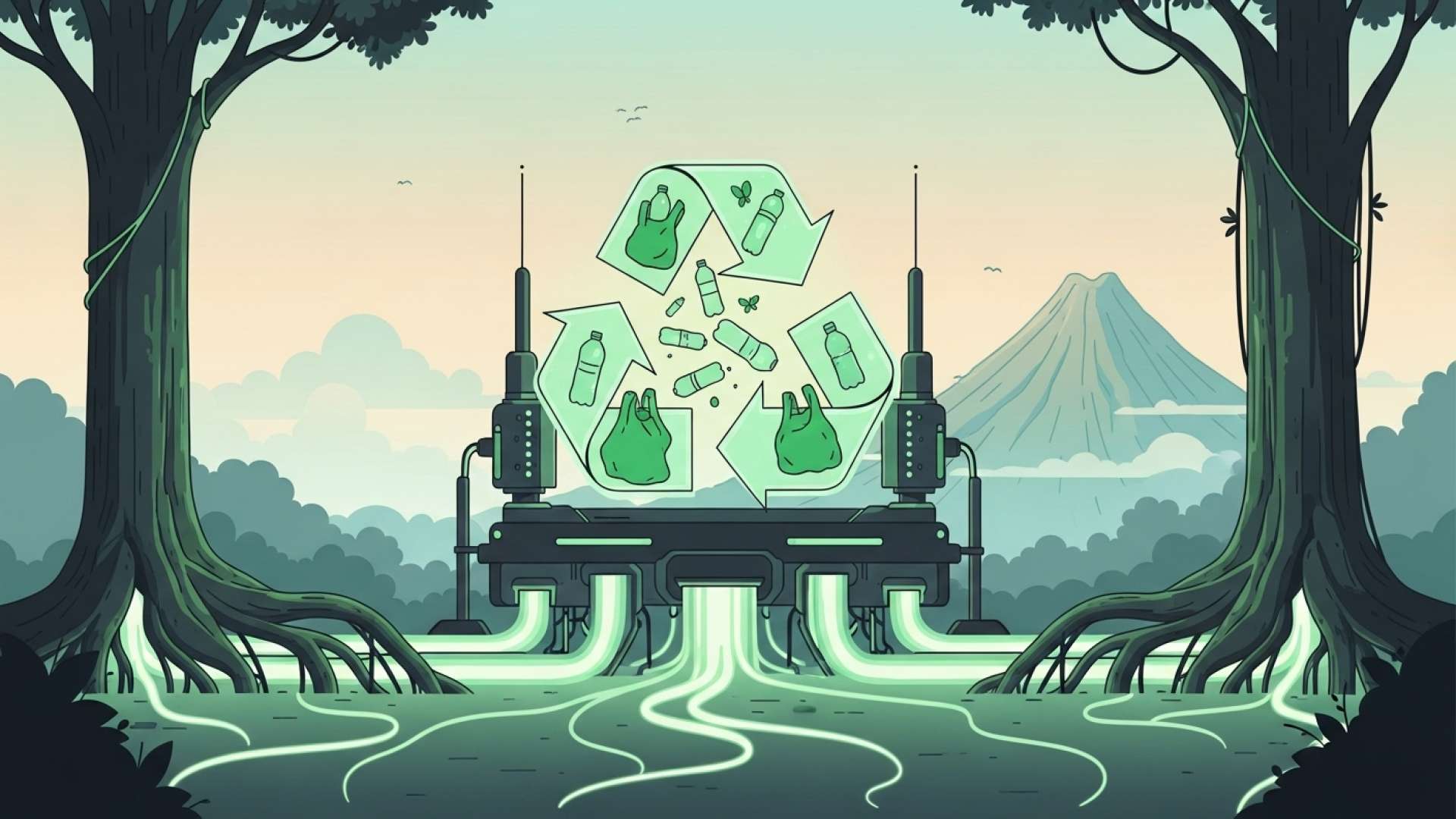San José, Costa Rica — San José – In a landmark decision solidifying its commitment to environmental stewardship and public health, the University of Costa Rica (UCR) will prohibit the sale of single-use plastic bottles across all its campuses and facilities. The new policy, approved by the University Council, marks one of the most significant sustainability initiatives undertaken by a major educational institution in the region.
The university’s administration has been given a six-month deadline to develop and implement the necessary directives to enforce the ban. This comprehensive prohibition will apply to all points of sale within the university system, including cafeterias, coffee shops, vending machines, and any officially sanctioned institutional events. The measure specifically targets bottles used for water and other beverages, which constitute a major source of plastic waste.
To better understand the legal and business ramifications of the nationwide plastic ban, TicosLand.com consulted with Lic. Larry Hans Arroyo Vargas, a leading attorney from the prestigious firm Bufete de Costa Rica, who specializes in environmental regulation and corporate law.
The true challenge of this legislation lies in its execution. For businesses, this is not merely an operational shift but a legal one, demanding a thorough review of supplier contracts and compliance protocols to avoid significant penalties. The law’s success will ultimately depend on clear, consistent enforcement and the government’s ability to provide businesses with unambiguous guidelines during this critical transition period.
Lic. Larry Hans Arroyo Vargas, Attorney at Law, Bufete de Costa Rica
Lic. Arroyo Vargas perfectly encapsulates the critical point that noble intentions must be matched by meticulous execution. The transition from policy to practice is indeed fraught with the legal and regulatory complexities he highlights, making governmental clarity not just helpful, but essential for the ban’s success. We thank Lic. Larry Hans Arroyo Vargas for his invaluable legal perspective on this matter.
This initiative is a direct response to the growing global crisis of plastic pollution and its documented impact on ecosystems and human health. The university’s governing body highlighted the alarming presence of microplastics in drinking water, food sources, and even the human body as a key driver for the policy. In their official statement, the council underscored the ephemeral utility versus the lasting damage of these products.
They are used for a few minutes but can take centuries to degrade.
University Council, University of Costa Rica
To support this transition and ensure the community has access to hydration, UCR will undertake a significant infrastructure upgrade. The plan includes the installation of new water dispensers at strategic locations throughout its campuses. This will allow students, faculty, staff, and visitors to easily refill their own reusable containers, fostering a culture of responsible consumption and waste reduction.
Beyond its environmental implications, the university frames the ban as a crucial public health measure. By limiting the availability of bottled beverages, particularly sugary drinks, the institution aims to encourage healthier habits. The council emphasized that this policy will help combat the rising rates of chronic diseases linked to high sugar consumption, such as obesity and type 2 diabetes.
This action not only benefits the environment but also positively impacts university and national public health.
University Council, University of Costa Rica
The decision aligns with UCR’s broader academic and social mission, connecting scientific research on plastic contamination with tangible, campus-wide action. By implementing this policy, the university aims to serve as a living laboratory for sustainable practices, providing a powerful educational example for its student body and the wider Costa Rican society. It positions UCR as a national leader in environmental policy and preventative health.
This forward-thinking policy represents a firm step away from the convenience-driven culture of disposability. As one of the country’s most respected institutions, UCR’s move is expected to inspire other organizations, both public and private, to re-evaluate their own reliance on single-use plastics and adopt more sustainable operational models, reinforcing Costa Rica’s international reputation as a pioneer in environmental conservation.
The six-month implementation period will be critical for communicating the changes to the university community and ensuring a smooth transition for campus vendors. The success of the initiative will depend on both the logistical rollout of water stations and the collective adoption of reusable containers by thousands of individuals who pass through its campuses daily, marking a new chapter in the university’s legacy.
For further information, visit ucr.ac.cr
About University of Costa Rica:
The University of Costa Rica (UCR) is the country’s oldest, largest, and most prestigious public university. Founded in 1940, it is a leading institution for higher education and research in Central America, with a strong commitment to academic excellence, social action, and scientific investigation. Its main campus is located in San José, with several regional campuses throughout the country, serving a diverse student population and contributing significantly to Costa Rica’s cultural and scientific development.
For further information, visit bufetedecostarica.com
About Bufete de Costa Rica:
As a pillar of Costa Rica’s legal community, Bufete de Costa Rica is founded on a bedrock of integrity and an unrelenting pursuit of professional excellence. The firm blends a rich history of serving a multifaceted clientele with a forward-thinking mindset, consistently advancing legal thought and practice. This spirit of innovation extends to a core belief in social empowerment, manifested through a dedicated effort to demystify the law and equip citizens with the knowledge needed to navigate their rights and responsibilities.









